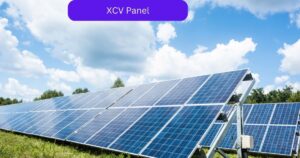Can a water heater work without electricity? A water heater is a device that converts energy to heat, serving various purposes in homes and businesses globally. Specifically, non-electric or off-grid water heaters, operating independently from the power grid, have gained popularity for their energy efficiency.
An interesting aspect of these non-electric water heaters is their ability to function without the need for an external power source. This makes them an excellent choice for remote locations, during power outages, or for those seeking to reduce their dependence on electricity.
Non-electric water heaters utilize various energy sources such as natural gas, propane, solar energy, or even wood. These heaters come in different types, including tankless models, which heat water on demand and offer the advantage of providing hot water without the need for a storage tank.
The Basics of Conventional Water Heaters
Fuel-Powered Heating
Gas Water Heaters
Gas water heaters epitomize a stalwart solution for heating water without relying on electricity. These robust systems harness the combustive power of natural gas or propane to generate the heat necessary for warming your water supply.
In specific scenarios, such as when transporting a gas water heater on its side, it’s crucial to consider safety measures to ensure the proper functioning of the pilot light and burner. This careful handling preserves the efficiency and reliability of these water heaters, maintaining a constant and dependable hot water supply.
Oil-Fired Water Heaters

For those without access to natural gas, oil-fired water heaters present a viable alternative. These systems utilize heating oil as the primary fuel source, employing a burner mechanism to generate the required heat.
While less common than gas heaters, oil-fired counterparts provide a dependable option for households in regions where natural gas is not readily available.
Tankless Water Heaters
In the landscape of non-electric water heaters, tankless systems emerge as innovative solutions. Unlike their traditional counterparts, tankless water heaters eschew the need for a storage tank. Instead, they leverage a heat exchanger to swiftly warm water as it flows through the unit.
This on-demand heating method not only ensures a constant supply of hot water but also contributes to energy efficiency, as there is no standby heat loss associated with a storage tank.
Unconventional Heating Methods
Solar-Powered Water Heaters
Harnessing the abundant energy of the sun, solar-powered water heaters epitomize sustainable living. These systems utilize solar collectors, typically mounted on rooftops, to capture sunlight.
The collected solar energy then heats a fluid, often a glycol mixture, which circulates through the system and transfers its warmth to the water in the storage tank. Solar-powered water heaters exemplify an eco-friendly alternative, significantly reducing dependence on traditional energy sources.
Wood-Burning Water Heaters

In instances where access to gas, oil, or electricity is limited, wood-burning water heaters emerge as a rustic yet effective solution. These heaters feature a combustion chamber where wood, pellets, or other biomass materials are burned.
The heat generated from this combustion process is transferred to the water, providing a straightforward and energy-efficient method for heating water in off-grid or remote settings.
Geothermal Water Heaters
Embracing the Earth’s natural heat, geothermal water heaters tap into the stable temperature found below the ground’s surface. This method involves circulating a fluid through a looped system buried underground.
As the fluid absorbs the consistent underground temperature, it returns to the surface, transferring its acquired warmth to the water in the heater. Geothermal water heaters exemplify an eco-conscious option, leveraging renewable energy for efficient water heating.
Ensuring Continuous Hot Water During Power Outages:
In essence, the only way to ensure an uninterrupted supply of hot water during a power outage is to possess a traditional gas tank water heater operating solely on a pilot light. Since it doesn’t rely on the electric circuit, the heater remains unaffected by power disruptions and continues to function seamlessly.
Emergency Measures
Manual Ignition Systems
In unforeseen circumstances such as power outages, water heaters equipped with manual ignition systems offer a reliable contingency plan. These systems allow users to initiate the heating process manually, ensuring access to hot water even when the conventional power supply is disrupted.
While not the primary mode of operation, manual ignition systems serve as a valuable backup, adding an extra layer of resilience to your water heating setup.
Backup Power Sources
Exploring alternative power sources becomes imperative in regions prone to frequent power interruptions. Backup power sources, such as generators or battery systems, can be integrated into water heating setups.
These sources ensure that, even during electrical outages, the water heater can continue its operations, providing a seamless hot water supply and mitigating the inconvenience associated with power failures.
Pros and Cons of Non-Electric Water Heaters
Advantages
Reliability
One notable advantage of non-electric water heaters is their inherent reliability. Systems powered by gas, oil, or alternative energy sources often operate independently of the electrical grid, ensuring a continuous supply of hot water even during power outages. This reliability is particularly crucial in situations where uninterrupted access to hot water is paramount.
Energy Efficiency
Many non-electric water heaters boast commendable energy efficiency. Tankless systems, for example, only heat water when needed, eliminating standby heat loss associated with storage tanks.
Solar-powered and geothermal systems capitalize on renewable energy, reducing dependence on conventional fuels and minimizing environmental impact. This energy-efficient nature aligns with contemporary sustainability goals.
Limitations
While water heaters are essential for providing a steady supply of hot water, they come with certain limitations that users should be aware of. Understanding these constraints can help homeowners make informed decisions regarding their water heating systems. Let’s explore some common limitations associated with water heaters.
Limited Hot Water Capacity
One notable limitation of traditional tank water heaters is their finite hot water capacity. The amount of hot water available is determined by the size of the tank. If demand exceeds the tank’s capacity, users may experience a temporary shortage of hot water until the heater can replenish it.
Standby Heat Loss
Tank water heaters continuously maintain the temperature of the stored water, leading to standby heat loss. Even when not in use, these heaters lose heat to the surrounding environment, impacting energy efficiency. This can result in increased energy consumption and higher utility bills.
Energy Source Dependency
The type of energy source a water heater relies on—be it electricity, natural gas, or propane—can be a limitation. Electric water heaters, for instance, may be vulnerable during power outages, interrupting the hot water supply. Gas water heaters are subject to fluctuations in gas availability and prices.
Space Requirements
Tank water heaters occupy physical space due to the storage tank. Homeowners with limited space may find it challenging to install larger capacity tanks. On the other hand, tankless water heaters, while more compact, may have specific installation requirements.
Maintenance Needs
Water heaters require regular maintenance to ensure optimal performance and longevity. Neglecting maintenance tasks, such as flushing the tank or inspecting components, can lead to issues like sediment buildup, reduced efficiency, and potential malfunctions.
Initial Cost and Installation
The upfront cost of purchasing and installing a water heater, especially high-efficiency models, can be a limitation for some homeowners. While energy-efficient units may result in long-term savings, the initial investment can be a barrier for those with budget constraints.
Environmental Impact
The environmental impact of water heaters, particularly those relying on non-renewable energy sources, is a concern. High energy consumption contributes to carbon emissions. Homeowners seeking eco-friendly options may explore solar water heaters or other sustainable alternatives.
Lifespan and Replacement Costs
Water heaters have a finite lifespan, typically ranging from 10 to 15 years. As they age, efficiency may decline, and repair needs may increase. Planning for replacement costs and choosing a heater with a suitable warranty can mitigate financial challenges.
| Heading | Description |
| 1. Ensuring Continuous Hot Water During Power Outages: The Advantage of Gas Conventional Tank Water Heaters | Explores how traditional gas tank water heaters with pilot lights offer uninterrupted hot water supply during power outages. |
| 2. Limited Hot Water Capacity: | Discusses the finite hot water capacity of tank water heaters and the potential for temporary shortages during high demand. |
| 3. Standby Heat Loss: | Highlights the standby heat loss in tank water heaters, impacting energy efficiency and contributing to higher utility bills. |
| 4. Energy Source Dependency: | Examines how the choice of energy source (electricity, gas, or propane) can impact a water heater’s reliability in various situations. |
| 5. Space Requirements: | Discusses the physical space occupied by tank water heaters and potential challenges for homeowners with limited installation space. |
| 6. Maintenance Needs: | Explores the importance of regular maintenance to prevent issues like sediment buildup and ensure long-term efficiency. |
| 7. Initial Cost and Installation: | Discusses the upfront costs and installation considerations, considering budget constraints and long-term savings. |
| 8. Environmental Impact: | Examines the environmental concerns related to water heaters and suggests eco-friendly alternatives for conscious homeowners. |
| 9. Lifespan and Replacement Costs: | Discusses the finite lifespan of water heaters, the decline in efficiency over time, and considerations for replacement costs. |
This table provides a concise overview of the key points discussed in the article, offering readers a quick reference to the main insights regarding gas conventional tank water heaters and their associated limitations.
FAQs
Can the water heater run without electricity?
Yes, certain types, like gas water heaters, can operate without electricity.
Can water be heated without electricity?
Yes, gas and propane water heaters don’t rely on electricity for heating.
Where does the water heater get power?
Gas water heaters use natural gas or propane as a power source.
How can I run my heater without electricity?
Choose a gas or propane water heater for electricity-independent operation.
What powers a water heater?
Gas water heaters are powered by natural gas or propane, not electricity.
Conclusion
Exploring the functionality of a water heater without electricity reveals the adaptability of alternative energy sources. Gas and propane water heaters, with reliance on pilot lights instead of electrical components, emerge as robust solutions during power outages, guaranteeing an uninterrupted supply of hot water.
This versatility, coupled with considerations for limitations and maintenance needs, empowers homeowners to make informed choices aligning with their preferences and circumstances. Exploring alternative options, such as gas conventional tank water heaters, provides insights into reliable alternatives, offering homeowners peace of mind and consistent hot water access even in adverse conditions.











